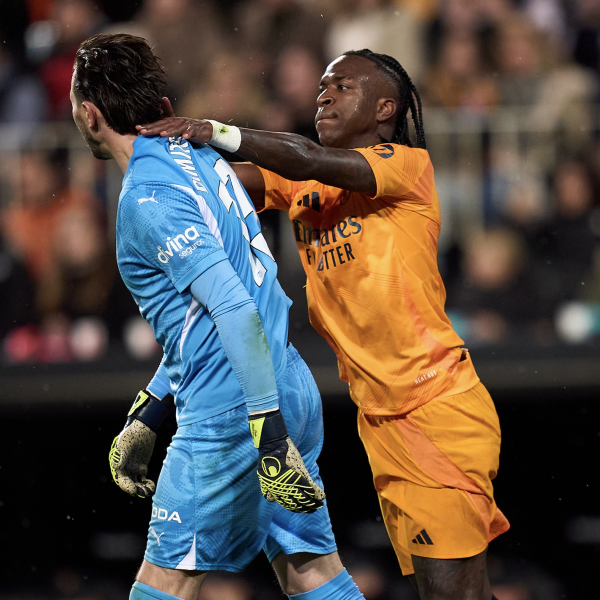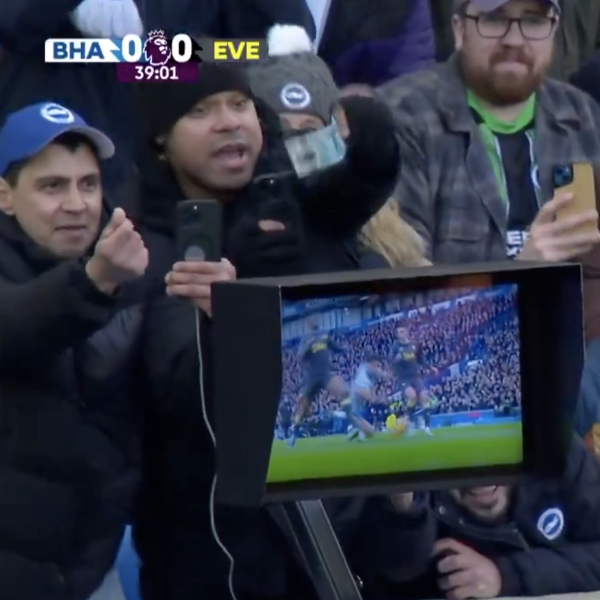You gotta feel bad for Cagliari regista Luca Cigarini.
During a Serie A match against Fiorentina on Friday, Cigarini scored what could have been the best goal of his career, launching a free kick from his own half into the back of the net.
But the goal didn’t count.
No, it wasn’t the result of VAR or suspicious refereeing (well, maybe a little of the latter). Instead, it was a case of a direct vs indirect free kick scenario.
Moments after João Pedro gave Cagliari a lead in the 52nd minute, Cigarini scored on a long free kick, sending the ball over the head of Fiorentina keeper Pietro Terracciano from just inside his own half. But it was waved off because it was an indirect free kick, and you’re not allowed to score straight off an indirect free kick without someone else touching the ball.
Unfortunately (and this is where the suspicious refereeing comes in) the official did not raise his arm to indicate an indirect free kick was taking place. At least not until after the kick was scored.
Referees are supposed to hold an arm up through the duration of an indirect free kick. Maybe this official was tired or just lazy, but it’s unfortunate for Cigarini. It’s possible he indicated off-camera that it was an indirect free kick, but it’s quite clear he didn’t do his full job.
Had Terracciano touched the ball on its way in, the goal would have stood.
Ultimately, it didn’t matter too much for Cagliari, which recorded a 2-1 win to move nine points clear of the relegation zone. Another Luca, Ceppitelli, scored the eventual winner in the 66th minute before a late consolation from Federico Chiesa.
For those wondering about direct vs indirect free kick distinction, most fouls result in direct free kicks. Not including goalkeeper offenses in the box, indirect free kicks are awarded if a player:
- plays in a dangerous manner
- impedes the progress of an opponent without any contact being made
- is guilty of dissent, using offensive, insulting or abusive language and/or gestures or other verbal offences
- prevents the goalkeeper from releasing the ball from the hands or kicks or attempts to kick the ball when the goalkeeper is in the process of releasing it
- commits any other offence, not mentioned in the Laws, for which play is stopped to caution or send off a player
Additionally, free kicks are always indirect after offside calls, as was the case in the above play.







